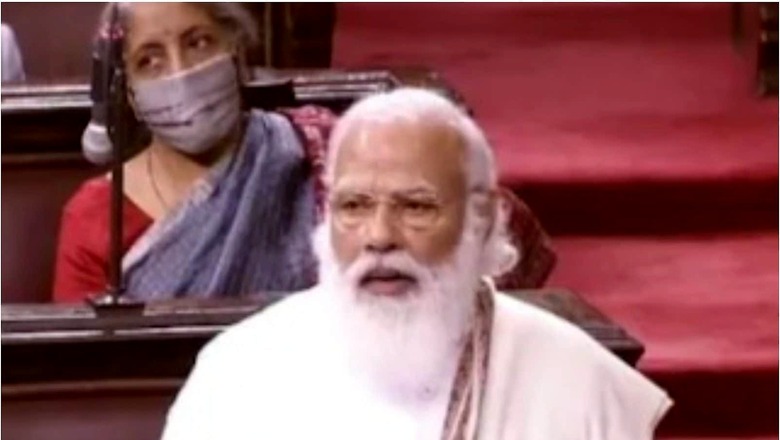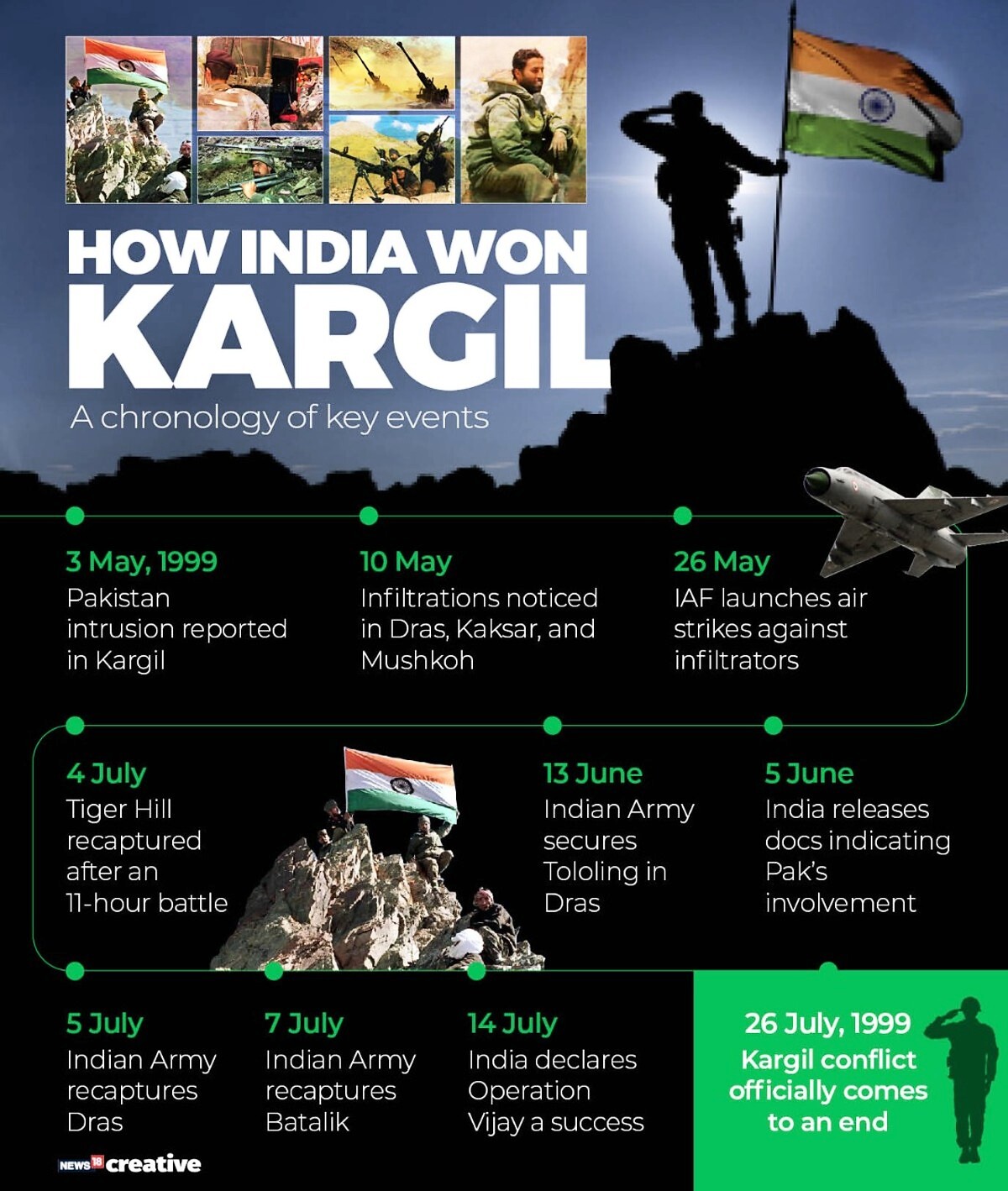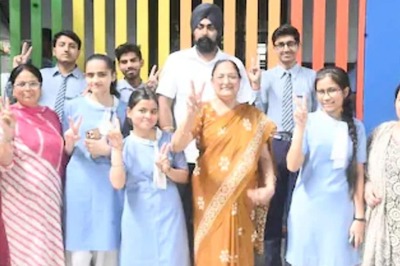
views
Prime Minister Narendra Modi on Monday paid tributes to the Indian armed forces, and hailed their valour and sacrifices which was demonstrated in the Kargil conflict in 1999. Tweeting on the occasion of Kargil Vijay Diwas, PM Modi wrote: “We remember their sacrifices. We remember their valour. Today, on Kargil Vijay Diwas we pay homage to all those who lost their lives in Kargil protecting our nation. Their bravery motivates us every single day.” he also shared an excerpt from last year’s ’Mann Ki Baat.’
https://twitter.com/narendramodi/status/1419478862967148547?s=20
On Sunday, Modi in the 79th edition of the monthly programme ‘Mann Ki Baat’ paid tributes to the armed forces who made the nation proud and also appealed the people to support the Indian Olympic Team on social media through ‘Victory Punch Campaign’.
https://twitter.com/PMOIndia/status/1419169202397581314?s=20
Kargil Vijay Diwas: History and Significance
Kargil Day is celebrated in India to commemorate the sacrifices made by Army personnel during the 1999 Kargil War. The conflict, dubbed as ‘Operation Vijay’, was waged by India and Pakistan in the Kargil area of Jammu & Kashmir. The Indian Army proclaimed a victorious conclusion to Operation Vijay on July 26, 1999, claiming victory after nearly three months of fighting on the snowy heights of Kargil. They retook the heights held by the Pakistan Army and raised the tricolour over the high-altitude area.

After the 1971 Indo-Pakistan war, the two nations rarely participated in direct armed confrontations, despite the fact that both countries have constantly attempted to control the Siachen Glacier by establishing military outposts on surrounding mountain peaks. This culminated in military clashes in the 1980s, which grew worse in the 1990s.
The nuclear tests undertaken by both India and Pakistan in 1998 exacerbated the situation. Just when it appeared that all was lost, both nations signed the Lahore Declaration in February 1999 to find a diplomatic resolution to the Kashmir dispute.
According to some sources, sections of Pakistan’s armed forces were secretly training their troops to cross the Line of Control (LoC) into India the same year. Their goal was to cut the link between Ladakh and Kashmir, as well as to force the Indian Armed Forces to leave the Siachen Glacier.
The nature of this infiltration was first unknown to the Indian armed forces. Believing they were jihadis, Indian military forces anticipated them to be evicted in a matter of days. Nevertheless, it was only afterwards that they understood that Pakistan’s overall plan of assault was considerably larger, and they discovered infiltration near the LOC.
The Indian government reacted boldly with Operation Vijay, recruiting about 200,000 Indian troops to battle. Every year on July 26, the date is remembered and honoured as Kargil Vijay Diwas. This day is a proud occasion for every Indian, and is widely celebrated throughout the country.
Pakistan initially denied any involvement in the fighting. It backed up its position by claiming that India was engaged in a conflict with “Kashmiri independence warriors.” Later, the government gave medals to its soldiers for their service during the fight. This made their role in the Kargil battle apparent.
In India, the day when the Army proclaimed the operation a success on July 26 is now marked yearly as Kargil Vijay Diwas. The conflict also led the government to raise defence spending in the following fiscal year.
Read all the Latest News, Breaking News and Coronavirus News here.




















Comments
0 comment